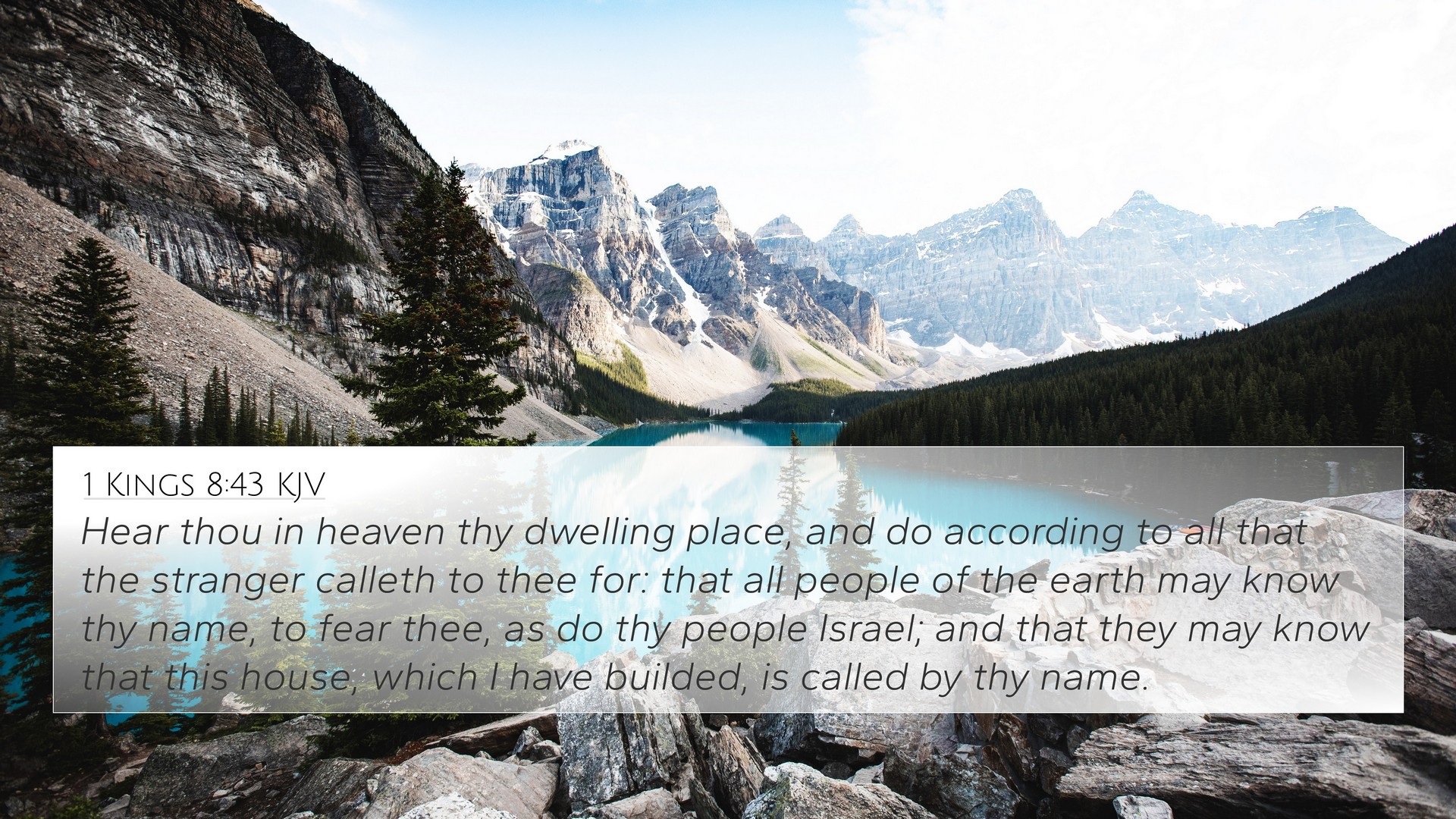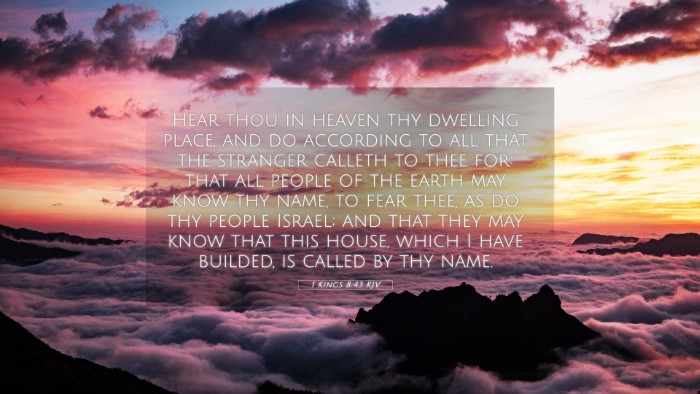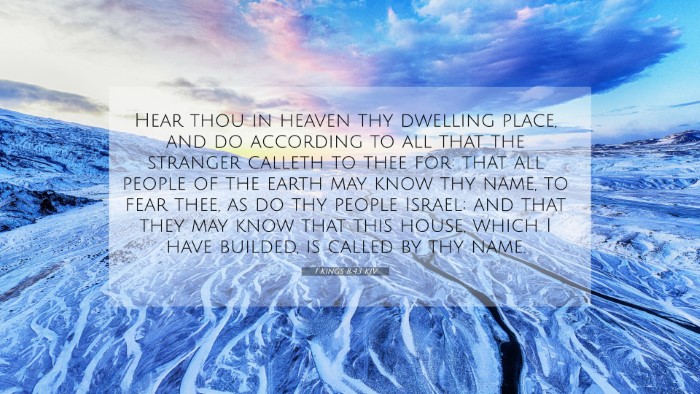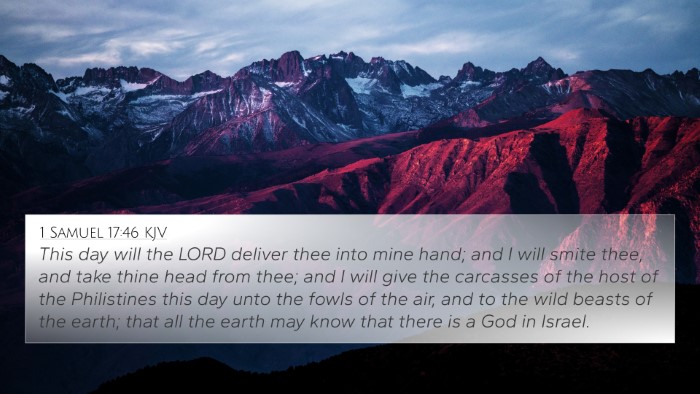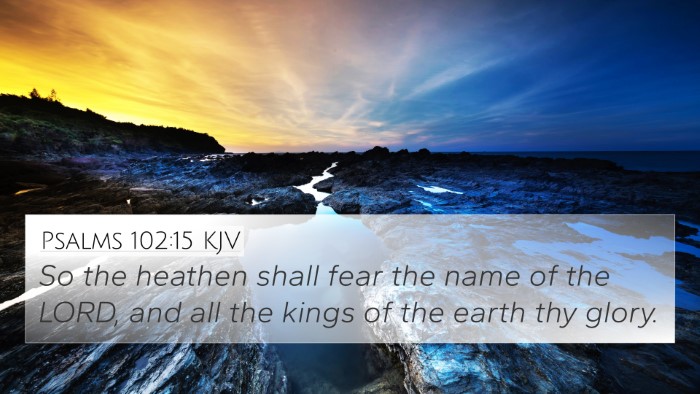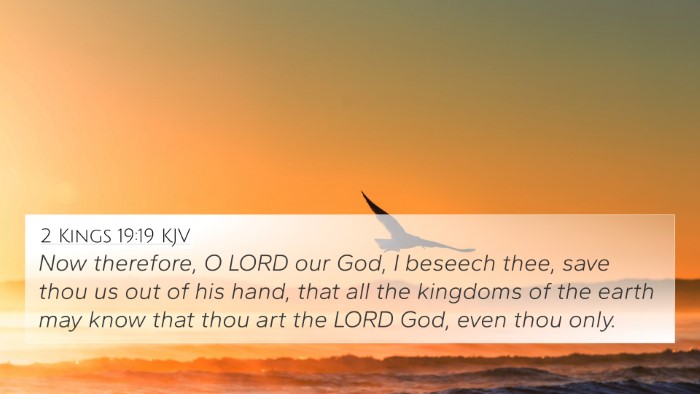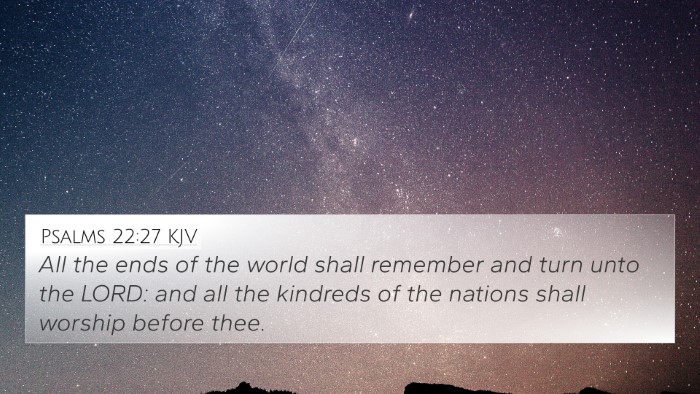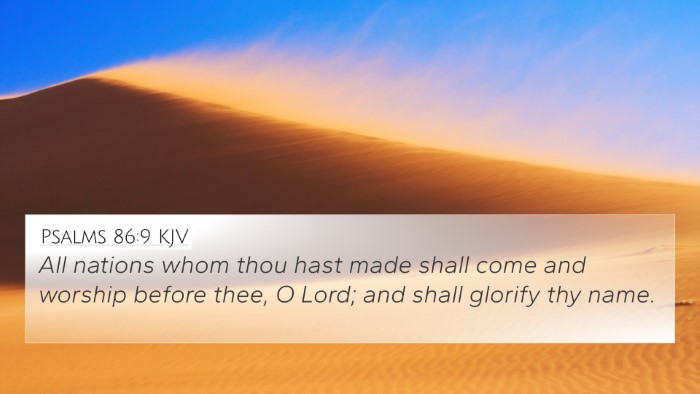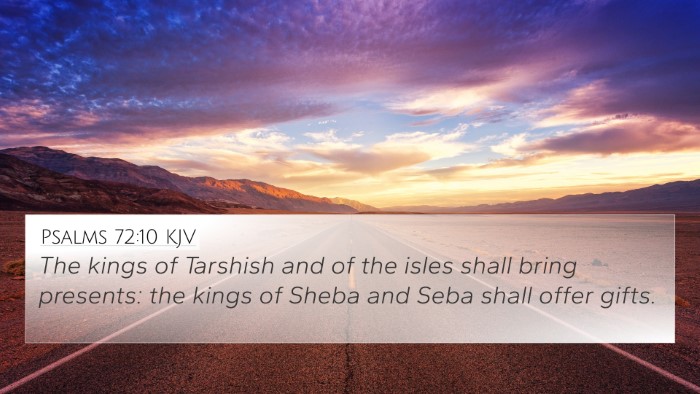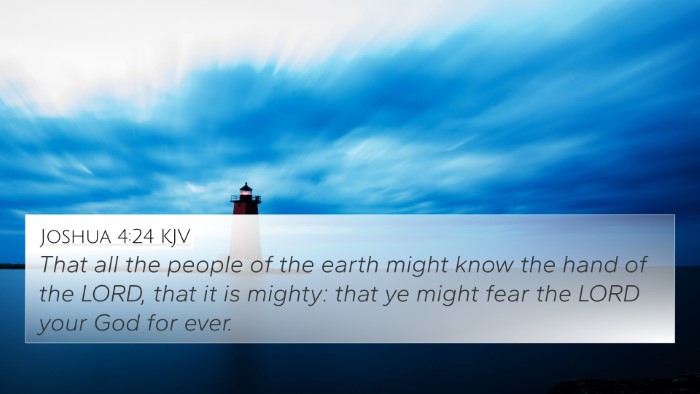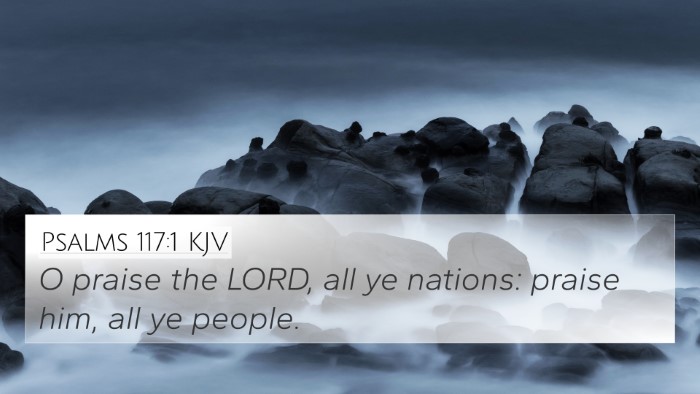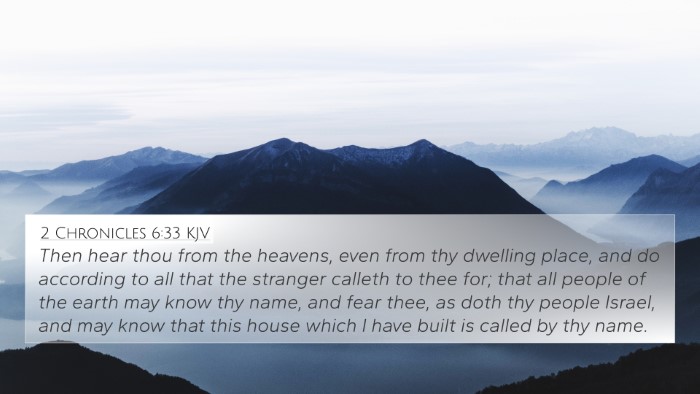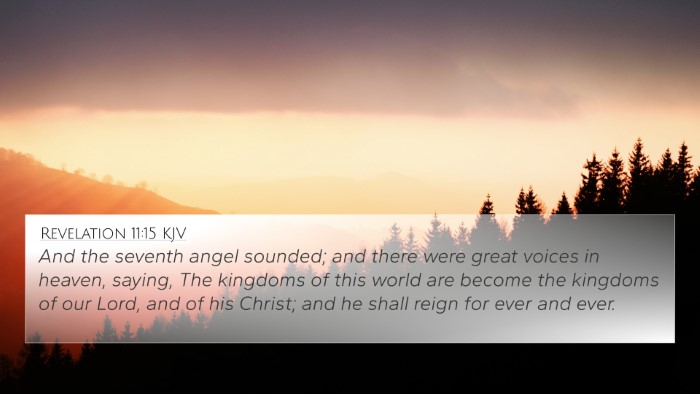Understanding 1 Kings 8:43
Verse Overview: 1 Kings 8:43 states: “Hear thou in heaven thy dwelling place, and do according to all that the stranger calleth to thee for; that all people of the earth may know thy name, to fear thee, as do thy people Israel, and that they may know that this house which I have built is called by thy name.” This verse is part of Solomon’s dedicatory prayer for the temple, expressing a desire for God's awareness and response to the prayers of even foreigners.
Significance of the Verse
This verse carries profound implications for understanding the nature of God’s compassion and His desire for all people to approach Him in prayer and recognition of His holiness. Through public domain commentaries such as those by Matthew Henry, Albert Barnes, and Adam Clarke, we can explore the multifaceted meanings behind this scripture.
Matthew Henry's Commentary Insights:
Matthew Henry emphasizes the universality of God's grace as described in this prayer. He notes that the request is not limited to the people of Israel, but extends to any “stranger” who wishes to seek God and pray at the temple. This highlights God's readiness to listen and respond to all who seek Him with sincerity, regardless of their origin.
Albert Barnes' Commentary Insights:
Albert Barnes points out that this verse signifies God's desire for the temple to be a house of prayer for all nations. This perspective is reinforced by the fact that Solomon was not merely concerned for Israel but also for gentiles who would call upon the name of the Lord while in the temple. This expands the vision of the temple as a meeting place between God and humanity.
Adam Clarke's Commentary Insights:
Adam Clarke discusses how this prayer illustrates the global mission of Israel. He underlines the hope that the temple would become a point of contact where anyone could experience God's presence. By doing so, Clarke emphasizes the importance of the temple in God’s plan for salvation, extending beyond Israel to the entire world.
Bible Cross-References:
- Isaiah 56:6-7: "And the sons of the foreigners who join themselves to the Lord, to serve Him, and to love the name of the Lord, to be His servants..." - illustrating God’s invitation to all nations.
- Acts 10:34-35: "Then Peter opened his mouth and said: 'In truth I perceive that God shows no partiality. But in every nation, whoever fears Him and works righteousness is accepted by Him.'" - emphasizes the acceptance of all who seek God.
- John 4:21-24: Jesus’ discussion with the Samaritan woman about worship being related to spirit and truth rather than physical locations shows the universal aspect of worship.
- Luke 19:46: Jesus quotes Isaiah when He cleanses the temple saying, "My house shall be a house of prayer for all nations." - affirms the temple’s purpose.
- Romans 10:12-13: "For there is no distinction between Jew and Greek, for the same Lord over all is rich to all who call upon Him." - reinforces that salvation is available to everyone.
- Matthew 21:13: Jesus declares the temple as a house of prayer, emphasizing its function for all people.
- Psalm 86:9: "All nations whom You have made shall come and worship before You, O Lord..." - indicating that the worship of God transcends national boundaries.
- Galatians 3:28: "There is neither Jew nor Greek, slave nor free, male nor female, for you are all one in Christ Jesus." - highlights equality before God.
- Revelation 7:9: Vision of a great multitude from every nation, tribe, people, and language standing before the throne, showing ultimate fulfillment of God's desire for all nations.
- Matthew 28:19: The Great Commission calls all believers to make disciples of all nations, showcasing the universal invitation of the gospel.
Thematic Connections and Analysis
This verse reveals significant thematic connections across Scripture regarding prayer, worship, and God’s desire for all nations to honor Him. The recurring theme in both the Old and New Testaments is that God’s house, the temple, is intended to be a space of prayer and connection not just for Israel, but for anyone seeking Him. This establishes a foundation for inter-Biblical dialogue on prayer's purpose and God's inclusivity.
Cross-Referencing Biblical Texts:
Using tools for Bible cross-referencing, such as a concordance or a cross-reference guide, helps individuals see how 1 Kings 8:43 interconnects with various other scriptures. Understanding these connections enriches the study and interpretation of the Bible, revealing a larger story about God's outreach to humanity.
Connecting the Old and New Testament:
The links found between the Old Testament verses that speak of God’s house and the New Testament passages that emphasize the call to mission and inclusivity reflect a cohesive narrative of God's overarching plan. The theme of a universal invitation is consistent, showcasing God’s character throughout the Scriptures.
Conclusion
1 Kings 8:43 serves as a powerful reminder of God’s openness to all who earnestly seek Him. With commentary insights and scriptural parallels, we can see a rich tapestry of God’s love and an invitation to all nations to come to Him. The role of the temple as a house of prayer resonates through the ages and emphasizes God's desire for a relationship with every individual, regardless of their background. This verse aptly highlights that prayer, worship, and connection to God transcend cultural and ethnic boundaries, fostering a spirit of unity and faith among all His people.
